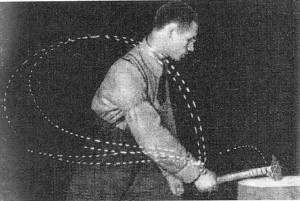The introduction and first chapter of Tara Zahra’s Lost Children: Reconstructing Europe’s Families After World War I, presents a fascinating survey of changing attitudes towards children across Europe in the aftermath of the First World War. We learn, thanks to Zahra’s research on four humanitarian crises during the Interwar Period – the Armenian Genocide, the efforts of the American Relief Association in Eastern Europe, the tragedy of refugee families separated from one another in different countries, and the Spanish Civil War- how children came to earn special consideration in response to humanitarian crises and in European peoples’ general understanding of war and violence.
Early in the introduction, Zahra echoes the two texts we read by David L. Hoffman, which describe the demarcation of a social realm apart from the political and economic spheres in order to better respond to problems related to poverty, crime, and social unrest and how this shaped efforts to respond to the pressures of industrialization and the prospect of modern warfare through new means of categorizing and governing citizens. According to Hoffman, these developments stemmed from the gradual realization by European monarchs that their success as political figures and military strategists depended on their ability to cultivate a productive workforce, strong and able enough to respond to the industrial and military needs of the modern state. It would appear logical then, that children, the root of such a workforce, might have much to gain from this mentality. Zahra confirms this at the bottom of page nineteen, informing her readers that European children did in fact reap the benefits of the age’s changing mentality, thanks to increasingly “romantic” views amongst Europe’s middle classes that no longer saw children as another source of labor, but as future citizens, who should have time to play and develop their minds in preparation for this important role. As this new mentality gained more legitimacy, humanitarian and religious organizations began protesting child labor and the separation of children from their families.
It therefore comes as no surprise that children forced into lives as refugees during and after the First World War would arouse the passions of the liberal-minded European middle classes. In each of the four cases cited above, those advocating humanitarian initiatives on behalf of children saw their plight as especially distressing. Following the Armenian Genocide, for instance, the League of Nations Commission for the Protection of Women and Children in the Near East set an important precedent by considering the recovery of lost children as an international moral imperative (Zahra, 30).
Zahra also reveals that these same humanitarian organizations and their supporters came to consider the fragmentation of the family unit as one of the worst atrocities wrought by war. This I found particularly interesting, as it affirmed Mazower’s contention that the Interwar Left and Right considered the family as “the natural, primary, and fundamental unit of society” (Mazower, 89). Zahra’s work also reminded me of Wilhelm Reich’s book on the relationship between sexual repression and fascism, The Mass Psychology of Fascism. In it, he identifies the family as “political reaction’s germ cell”, the product of an authoritarian society, and thus “the most important institution for its conservation” (Reich, 104-105). One might therefore find him or herself tempted to argue that the privileging of family rights in conjunction with those of the child over the rights of individual civilians left out of those categories might lead to a situation, visible in fascist states, in which there exist no rights external to those concerning the family’s right to protection from dissolution and decomposition.


